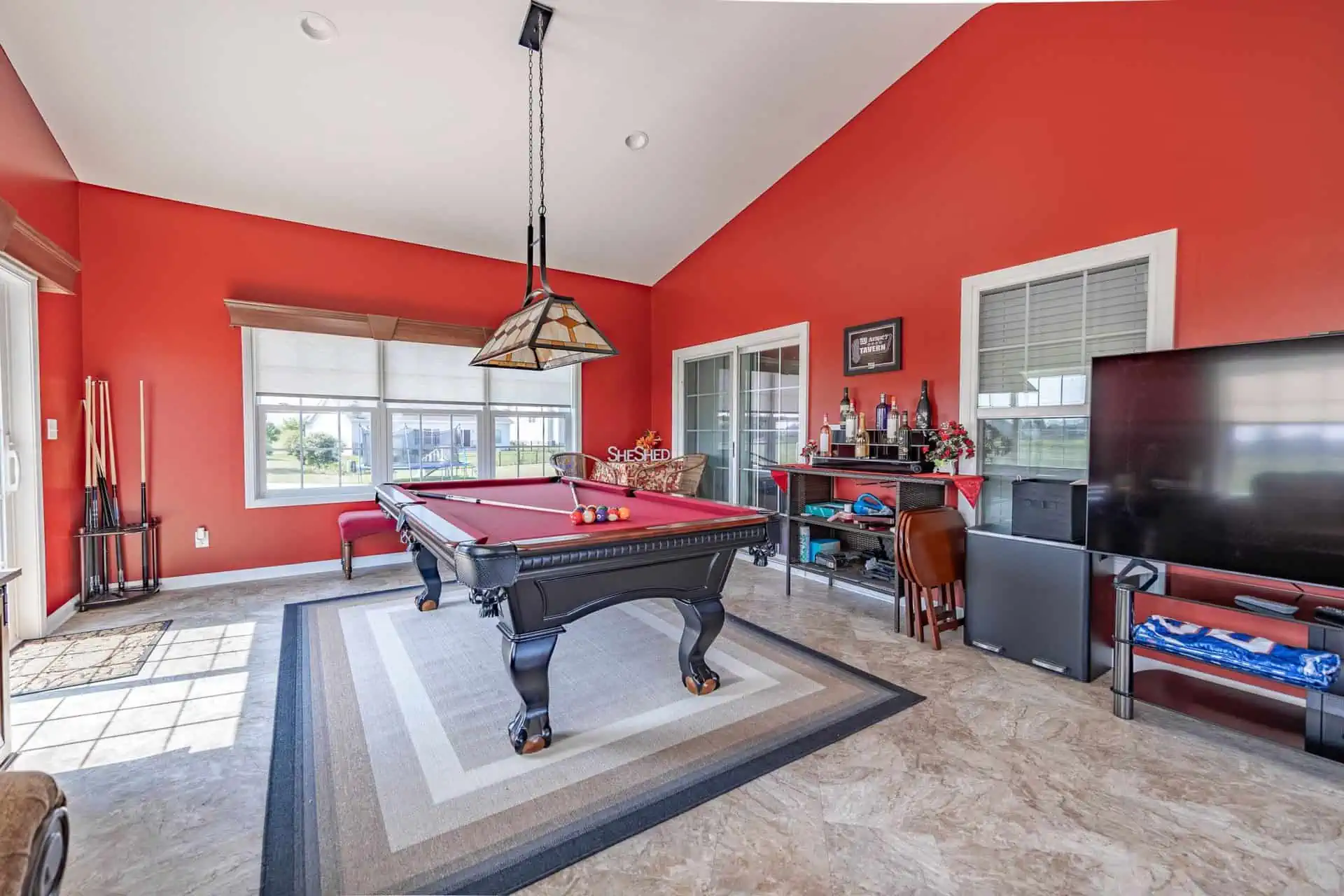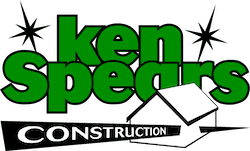Creating a renovation budget isn’t just about crunching numbers; it involves careful planning, accurate cost estimates, and setting realistic expectations to bring your vision to life without breaking the bank. Whether you’re aiming to modernize your home for efficiency, style, or comfort, you’ve come to the right place. Ken Spears Construction provides a comprehensive guide to realistically setting your remodeling budget. We’ll also share tips that can save you time and money and help you avoid unnecessary frustration.
Defining Your Goals and Objectives

Setting a realistic home remodeling and renovation budget starts with clearly understanding what you hope to achieve through your project. Before diving into the numbers, you must outline your goals and objectives. Are you aiming to enhance the aesthetics of your home, or are the renovations more functionally driven? These answers will guide your budgeting decisions.
Establish Your Vision
Begin by identifying what you wish to change about your home. This could range from updating an outdated kitchen, adding an extra bathroom for convenience, or transforming the basement into a livable space. Being specific about your goals allows you to pinpoint the costs associated with each objective more accurately.
Create a List of Improvements
Once you have a clear vision, compile a list of your desired house improvements. It’s essential to prioritize these improvements based on necessity. Not all renovations need to be completed immediately, and distinguishing between ‘must-haves’ and ‘nice-to-haves’ can help you allocate your resources wisely.
Prioritize Your Goals
The next step is to determine your renovation project’s specific goals and priorities. Assess which areas of your home need urgent attention and which aspects to compromise. This prioritization will guide you in effectively distributing your budget, ensuring that critical renovations are addressed first.
Strategic Questions When Setting Your Remodeling Budget
To further refine your action plan and budget, consider the following strategic questions:
What do I want to change about my home? Identifying the areas in need of change will help focus your project scope.
What is my budget? Knowing your financial limits from the outset guides your decision-making process.
What is the timeline for this project? A realistic timeline ensures you stay on track and within budget.
What is the scope of work? Understanding the extent of the renovations helps in planning and allocating resources.
What are the risks and challenges associated with this project? Anticipating potential issues allows for more accurate budgeting and planning.
These answers will help you create a focused action plan and a budget that reflects the true scope of your renovation needs. This will help prevent overspending on less critical aspects while ensuring that your primary goals are met, leading to a more successful and satisfying renovation experience.
Developing a Home Remodeling Plan

Developing your home remodeling plan will help you identify these priorities early on, setting the stage for all subsequent planning and budgeting phases of your renovation. Once you’ve pinpointed what you want to achieve, it’s time to think about the specifics of your home improvement project. This involves considering materials and finishes, which can influence remodeling costs.
Deciding where you can economize and where it’s worth investing a bit more is essential. Personal preferences, lifestyle, and your family’s unique needs will factor into these decisions. For instance, in a bathroom remodel, you may prioritize a luxurious walk-in shower over custom cabinetry, or in a kitchen update, an island might be non-negotiable for its functionality and communal benefits.
Listing Your Home Renovation Requirements
Setting a realistic budget for your remodeling project begins with a clear understanding of its requirements. After defining the scope of your renovation, it’s time to dive into the specifics and create a comprehensive list of all the changes you wish to implement. This list is your roadmap, guiding every decision and purchase and ensuring you stay within budget with unplanned additions.
Here’s what you should consider including in your detailed renovation requirements list:
Replacing Windows. Essential for energy efficiency, aesthetics, and comfort.
Installing New Floors. New flooring can transform a space whether you seek durability, beauty, or both.
Replacing the Roof. This crucial update protects your home from the elements and can improve its overall value.
Remodeling a Bathroom. A bathroom remodel can significantly impact your daily life, from functional upgrades to luxury enhancements.
Adding a Deck or Patio. Extend your living space outdoors for entertainment and relaxation.
Updating Kitchen Appliances. Modernize your kitchen for improved functionality and energy efficiency.
Painting the Exterior of Your Home. It’s a simple yet effective way to refresh your home’s appearance and protect its surfaces.
Navigating Cost Estimates for Your Home Renovation Budget

Gathering accurate cost estimates is indispensable for setting a practical remodeling budget. This step might seem daunting or unnecessary to some, but it’s foundational to a successful project outcome.
Why Cost Estimates Matter
Many homeowners underestimate the time and financial commitment needed for a home renovation. Opting for DIY or sourcing quotes from less-than-reliable providers can leave you unprepared for the actual costs. To avoid this pitfall, invest time in obtaining credible and detailed estimates.
Sources for Reliable Cost Estimates
Online Research. Platforms like Home Advisor can help you gauge the average cost of contractors and specific projects.
Local Hardware Stores. They can offer up-to-date pricing on materials and tools, giving you a clearer picture of material costs.
Experiences from Your Network. Friends or family who have renovated can provide invaluable insights into costs and reliable contractor recommendations.
Professional Consultations. Engage with professional renovators or contractors for their expert opinion on project costs. Consider geographical price variations—dumpster rental costs can vary significantly between cities.
The Importance of Multiple Quotes
A common oversight among homeowners is settling for a single quote. Aim to get at least three estimates to ensure a well-rounded view of potential costs. This diversity in quotes helps in the following:
1. Comparing Contractor Prices and Services. It gives you leverage in negotiating and choosing the best contractor for your project.
2. Budgeting Accuracy. This helps you assess whether your initial budget aligns with real-world costs, indicating whether you need to adjust your plans or if you have wiggle room for additional improvements.
Requesting Estimates
Start by reaching out to several reputable general contractors within your area. Although they might not immediately provide an exact quote, a ballpark figure can help gauge whether your budget aligns with your renovation goals. It’s crucial to understand that while some contractors offer free estimates, others might charge a fee based on the project’s scope. Limit your inquiries to three or four well-researched contractors to maintain focus and efficiency.
Setting Your Home Remodeling Budget: A Guide to Comparing Estimates
Now that you have gathered multiple cost estimates for your home renovation project, it’s time to sift through the information and set a solid, realistic budget. The journey from estimates to budget creation is crucial, ensuring your project aligns with your financial capabilities while aiming for the best possible outcomes.
1. Assessing Your Estimates
Start by carefully comparing the cost estimates you’ve received. Look beyond the bottom line; analyze what each contractor includes in their quote, such as materials, labor, project management, and how they address potential unforeseen issues. This comprehensive review helps you understand the value behind each estimate, making it easier to identify which one aligns best with your goals and budget.
2. Creating Your Budget Framework
A smart approach to establishing your budget is considering your home’s total value. Allocating about 10-15% of your home’s value towards renovation is a practical guideline, offering a good balance between your desires and the inevitable surprises that come with remodeling projects. This percentage serves as a starting point, giving you a ballpark figure to work with as you refine your budget based on the estimates.
3. Accounting for All Possible Costs
An effective budget is comprehensive. It goes beyond just the cost of materials and labor, incorporating expenses for project management and unforeseen complications. To accurately set your budget, factor in:
- Material Costs. The price of all materials required for the renovation.
- Labor Costs. Payment for the professionals and tradespeople who will work on your project.
- Project Management. Fees are associated with managing the renovation, whether through a general contractor or your own oversight.
- Unforeseen Issues. Any potential problems that could arise, such as structural issues uncovered during the renovation.
Calculate the total estimated cost and how it fits into your monthly financial obligations, ensuring you can comfortably afford the renovation without compromising other essentials like mortgage payments and living expenses.
4. Including a Contingency Fund
Renovations are notorious for surprises, so including a contingency fund in your budget is non-negotiable. Allocating 10-20% of your budget for unexpected expenses provides a safety net, ensuring you’re prepared for any scenario without jeopardizing the project’s completion.
5. Finalizing Your Budget
Once you’ve accounted for every element, consolidate your findings into a final budget. This budget should reflect a realistic and achievable plan that encompasses all costs, from materials and labor to contingencies. By balancing your desires with a clear-eyed view of the financials, you’re setting the stage for a successful renovation that stays within your means.
Financing Your Home Remodeling Project

After setting a realistic budget for your home renovation, the next crucial step is determining how you’ll finance the project. While paying out of pocket is ideal for some, many homeowners explore various financing options to support their renovation dreams.
Home Equity Line of Credit (HELOC)
A HELOC offers a flexible financing option, providing a revolving credit line based on your home’s equity. It’s particularly well-suited for ongoing or extensive renovations, allowing you to draw funds as needed. Due to the secured nature of the loan, a HELOC typically has lower interest rates, making it a cost-effective way to finance your project.
Home Equity Loans
Similar to HELOCs but with a critical difference, they provide a lump payment instead of a credit line and have fixed interest rates and repayment periods, making budgeting for repayment straightforward. Like HELOCs, your home acts as collateral, emphasizing the importance of maintaining consistent payments to avoid risking your property.
Personal Loans
Personal loans can be an attractive option for mid-sized projects, such as kitchen remodels or window replacements. Available through credit unions, banks, or online lenders, personal loans don’t require home equity. However, interest rates and eligibility are heavily dependent on your credit score.
Government Loans
Investigating government loan options can also be worthwhile. Veterans might find value in exploring cash-out refinance loans through Veterans Affairs, providing an avenue to convert home equity into cash for renovations.
Refinancing Your Mortgage
Refinancing your existing mortgage might be a viable strategy for those looking to avoid additional loans. A cash-out refinance can adjust your mortgage terms to lower your interest rate or increase your loan amount, providing direct funds for your renovation. While this option can offer immediate access to capital, it may extend the duration of your mortgage and introduce new closing costs.
7 Tips to Stick to Your Home Remodeling Budget
Sticking to your home renovation budget can be challenging, yet with the right approach and mindset, it’s entirely achievable. Here are seven essential tips to help you stay on track and make the most of your financial resources:
1. Understand Real Costs
The first step to staying within your budget is to understand the costs involved in the project. Misjudging expenses can significantly derail your financial plans. Always seek multiple estimates for a comprehensive view of potential costs and be prepared for the actual expenses, which can sometimes be higher than anticipated, especially in older homes.
2. Discern Between Savings and Skimping
Identify areas where you can economize without compromising the project’s integrity. While DIY efforts and cost-effective materials can save money, recognize when professional help is non-negotiable, such as electrical or plumbing work, to prevent costly mistakes.
3. Prioritize Quality
Opt for high-quality items that offer long-term value over cheaper, inferior alternatives. Investing in quality for significant elements like flooring, appliances, and fixtures can prevent future costs for repairs or replacements.
4. Seek Out the Best Deals
Diligent research and negotiation can lead to substantial savings without sacrificing quality. Compare prices and quotes to ensure you get the best value for your investment.
5. Be Ready to Compromise
Flexibility is key during renovation projects. Be prepared to adjust your plans or material choices to maintain your budget. While achieving a result you love is essential, some compromises may be necessary to stay financially responsible.
6. Don’t Overlook Small Details
It’s easy to focus on major expenses and overlook minor yet impactful details like hardware and fixtures. These elements play a significant role in the finished look of your renovation, so include them in your budget planning.
7. Maintain Organization
Effective communication and organization can prevent costly errors. Keep a detailed record of your budget, timelines, and contractor agreements. The more organized you are, the smoother the renovation process will be.
Consult with the Pros
The Ken Spears Construction team can offer insights to make informed budgeting decisions. We can help you understand fair pricing, prioritize your renovation goals, and find cost-effective solutions that align with your budget, all while ensuring that your project remains on track to achieve your vision. It’s essential to partner with a construction team that understands your budget and is committed to finding cost-effective solutions without sacrificing quality.
At Ken Spears Construction, we pride ourselves on our dedication to quality workmanship and our proven remodeling process, ensuring a positive and fulfilling home renovation experience from the initial concept to the final touches. We invite you to explore our portfolio and remodeling blog for more insights, tips, and inspiration. And when you’re ready to take the leap, reach out to schedule your in-home consultation.
Our team is ready to guide you through each phase of your home remodeling project, ensuring that your vision is realized with care, expertise, and a commitment to excellence.
